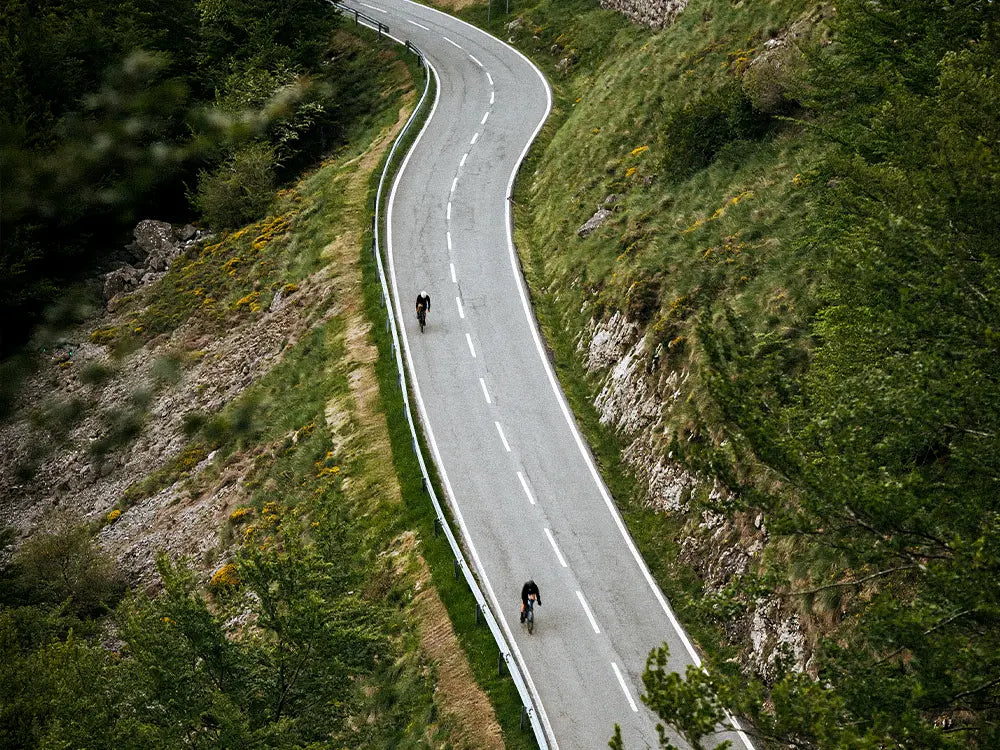Former professional cyclist Juan Antonio Flecha has found in ultra-distance races a new challenge that connects him to his passion for cycling from a completely different perspective. After a distinguished career in road cycling, Flecha a few years ago he has already thrown himself into the world of ultra-cycling, where self-sufficiency, adventure and extreme endurance become protagonists.
The attraction of ultradistance: adventure and freedom
When we ask Flecha what most appeals to him about ultra-distance events, the answer is clear: the adventure. "What attracts me most is the possibility of spending many hours, or even days, riding the bike, in a non-stop, self-sufficiency format," he says. These rides go beyond a simple physical challenge; they are an opportunity to disconnect, explore new terrain and face the uncertainty of what's to come.
For Flecha, the difference between professional cycling and ultra-distance events is abysmal in terms of preparation and sensations. "I've never prepared for an ultra on a physical level," he explains. Although he does spend time planning the material and the route, what he really values is the opportunity to have several days to ride, something that in his day-to-day life is complicated. "I rarely ride on weekends, and on weekdays I usually leave at first light (5:30 am) and by 7:30 I'm already preparing breakfasts at home for my family," he adds.

Transiberica: the freedom of the "free routes".
This year, Flecha decided to take on the Transiberica, an ultra-distance race with a "free route" format, i.e. each cyclist can choose his or her own route from a series of checkpoints. This edition was special, as the start took place outside Spain, a novel element that added even more excitement.
Unlike other ultra-cycling events, where the route is completely marked, in the "free route" the strategy is key. Flecha He explains that in these cases he always has a main route, but leaves room for improvisation, adapting to the weather conditions or the terrain he feels like at the time. "For example, in the Transiberica I chose to reach Mont Ventoux from Grenoble and Sault, instead of Geneva and Malaucène," he details. However, he also recognizes that he doesn't always make the best decisions: "The route through Aragon could have been improved, especially the arrival in Bilbao. I could have worked more on that part," he confesses.
This freedom of choice is one of the aspects he values most about the "free route" races, as it allows the cyclist to create his own experience without the pressure of following a predefined route.
The rise of gravel in ultras
The world of gravel has experienced impressive growth in recent years, and this has also reached ultra-cycling. However, Flecha The most notorious ultras in Europe, such as the Transcontinental Race (TCR), are road races, while others, such as the Divide, are MTB races," he says.
But the competitive spirit is always present, Flecha he favors seeing these events as personal challenges rather than races in the traditional sense. "I don't believe in the idea of comparing yourself to other years or having an award. For me, the important thing is to set yourself a course that you're not sure if you're going to be able to complete or not," he says. In the Transiberica, for example, he set a goal to ride 400 km a day for less than seven days, a feat that raised doubts about whether he would be able to achieve it.

Tips for getting started in ultra-distance races
For those who want to enter the world of ultra-cycling, Flecha offers some basic advice. "It's best to take it one step at a time and start with events that include an overnight," he suggests. Among his recommendations for beginners, he highlights events of around 300-400kms to take the first steps in this type of challenge.
As for the must-haves he takes with him on his adventures, Flecha he mentions a good headlamp, food, warm clothes and a suitable bib shorts depending on the level of preparation. "If you get there fine, the bib shorts Lancer are perfect, if not, it's better to opt for the Ultralite" he advises.
Equipment is fundamental in ultra-distance events, where self-sufficiency plays a key role. For Flecha, these are some of the essentials: bag, cream for the chamois, photochromic lenses, lights and reflectors, a powerbank, some cash, thermo-insulating mat, thermal blanket, padded jacket and rain jacket. "With all this, you're prepared for whatever comes," he concludes.
Juan Antonio Flecha has found in ultra-cycling a new way to enjoy cycling, one that combines adventure, self-sufficiency and the freedom to explore new horizons on two wheels. For those looking for a new challenge, an ultra-distance race is undoubtedly an unforgettable experience.











